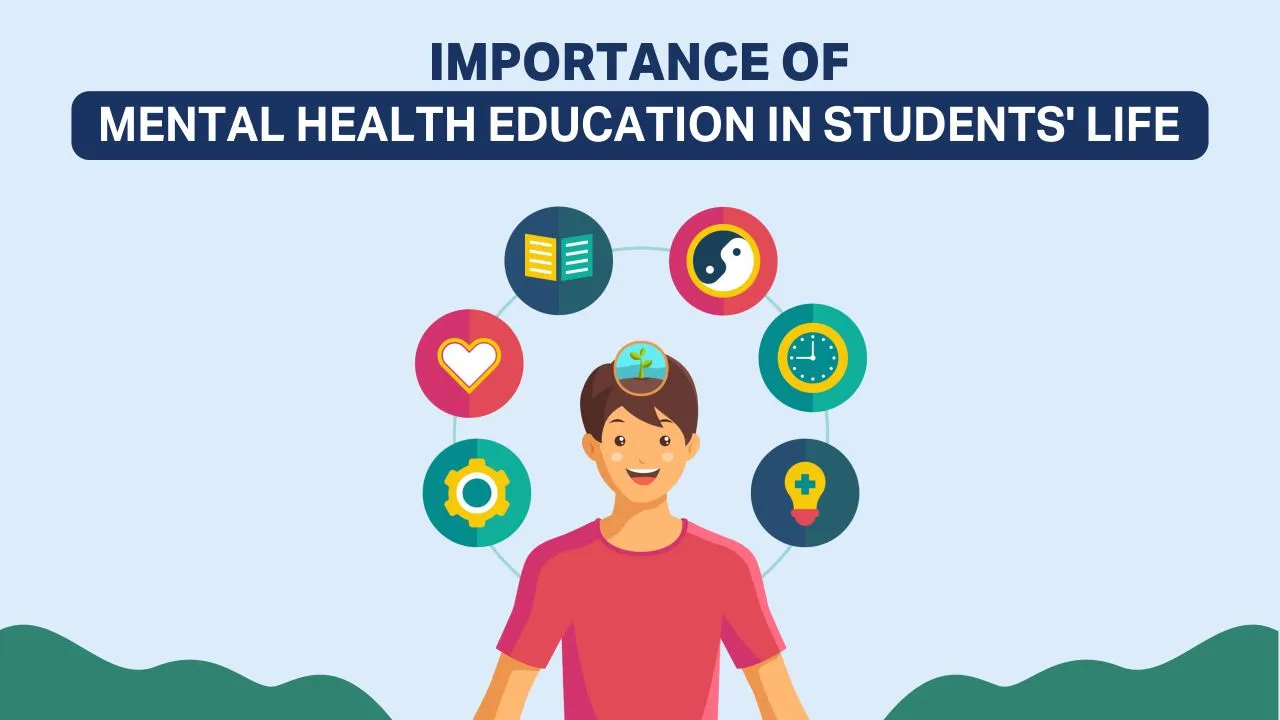Why Mental Health Education in Schools is Essential for Students’ Success and Well-Being
In recent years, the significance of mental health has gained widespread recognition. However, despite the increasing awareness, many individuals—especially children and adolescents—continue to struggle with psychological disorders without adequate support or understanding. This underscores the critical need for comprehensive mental health education in schools. By integrating mental health education into the curriculum, we can equip students, teachers, and parents with the tools and knowledge necessary to foster a supportive environment conducive to mental well-being.
Understanding Mental Health
Mental health encompasses emotional, psychological, and social well-being. It influences how individuals think, feel, and act, as well as how they handle stress, relate to others, and make choices. Just as physical health is essential for overall well-being, so too is mental health. Ignoring mental health can lead to severe consequences, including academic decline, social withdrawal, and even self-harm or suicidal ideation.
The Prevalence of Psychological Disorders in Children
Children and adolescents are not immune to psychological disorders. According to the World Health Organization (WHO), one in six people aged 10-19 years suffer from mental health conditions. Conditions such as anxiety, depression, ADHD, and behavioral disorders are prevalent and can severely impact a child’s development and quality of life if left unaddressed.
The Role of Schools in Mental Health Education
Schools are a primary social environment for children and adolescents. As such, they play a pivotal role in shaping students’ mental health. Integrating mental health education into the school curriculum can have several benefits:
- Early Identification and Intervention: Mental health education helps in the early identification of psychological disorders. Teachers and peers who are educated about the signs and symptoms of mental health issues can identify and support students in need, ensuring timely intervention.
- Stigma Reduction: Educating students about mental health reduces stigma. When children understand that mental health issues are common and treatable, they are less likely to harbor prejudices and more likely to seek help when needed.
- Skill Development: Mental health education equips students with coping strategies, stress management techniques, and problem-solving skills. These skills are crucial for navigating the challenges of adolescence and adulthood.
- Supportive Environment: A school environment that prioritizes mental health fosters a culture of openness and support. Students feel safer and more connected, which enhances their overall well-being and academic performance.
Components of Effective Mental Health Education
An effective mental health education program should be comprehensive and inclusive, addressing various aspects of mental health and well-being. Key components include:
- Curriculum Integration: Mental health topics should be integrated into the existing curriculum across subjects. For example, discussions about stress management can be included in health classes, while literature classes can explore characters’ psychological struggles.
- Teacher Training: Teachers should receive training on mental health awareness and intervention strategies. This enables them to recognize signs of distress and provide appropriate support or referrals.
- Student Programs: Schools should implement programs that promote mental health awareness, such as peer support groups, mindfulness sessions, and workshops on emotional regulation.
- Parental Involvement: Educating parents about mental health is crucial. Schools can organize seminars and distribute resources to help parents support their children’s mental health at home.

Addressing Specific Psychological Disorders
Different psychological disorders require different approaches. Here are some common disorders and how schools can address them:
- Anxiety Disorders: Anxiety disorders are characterized by excessive fear or worry. Schools can help by teaching relaxation techniques, providing a supportive environment, and offering counseling services.
- Depression: Depression involves persistent sadness and loss of interest. Schools can support students by promoting social connections, encouraging physical activity, and ensuring access to mental health professionals.
- ADHD: Attention-Deficit/Hyperactivity Disorder (ADHD) affects concentration and behavior. Strategies include providing structured routines, allowing for movement breaks, and using positive reinforcement.
- Behavioral Disorders: Behavioral disorders manifest as disruptive behaviors. Schools can implement behavior management plans, offer social skills training, and involve families in intervention strategies.
The Impact of Mental Health Education on Students and Families
For students and their families, mental health education in schools can be transformative. Here are some of the potential impacts:
- Improved Academic Performance: Students who receive mental health support are more likely to perform well academically. Reduced anxiety and better coping skills lead to improved focus and productivity.
- Enhanced Social Skills: Understanding mental health helps students develop empathy and better interpersonal skills, which are essential for forming healthy relationships.
- Parental Empowerment: Educating parents about mental health empowers them to support their children effectively. They learn to recognize signs of distress and how to access appropriate resources.
- Long-term Well-being: Early mental health education lays the foundation for lifelong well-being. Students learn to prioritize their mental health, leading to healthier, more fulfilling lives.
Overcoming Challenges in Implementing Mental Health Education
Despite the clear benefits, implementing mental health education in schools can be challenging. Common obstacles include:
- Limited Resources: Many schools lack the necessary resources, such as funding and trained personnel, to implement comprehensive mental health programs.
- Stigma: Persistent stigma around mental health can hinder efforts to integrate mental health education. It is crucial to create a culture of acceptance and understanding.
- Lack of Awareness: There may be a lack of awareness or understanding of the importance of mental health education among school administrators and policymakers.
- Parental Resistance: Some parents may resist mental health education due to misconceptions or cultural beliefs. Schools need to engage parents and address their concerns through education and communication.
Conclusion
The importance of mental health education in schools cannot be overstated. By equipping students, teachers, and parents with the knowledge and skills to address mental health issues, we can create a supportive environment that promotes well-being and academic success. Mental health education not only benefits those with psychological disorders but also fosters a culture of empathy, resilience, and understanding. As we move forward, it is essential to advocate for the integration of mental health education in all schools, ensuring that every student has the opportunity to thrive both mentally and academically.
By prioritizing mental health education, we take a crucial step towards a healthier, more supportive society, where individuals can reach their full potential without the burden of untreated mental health issues.

